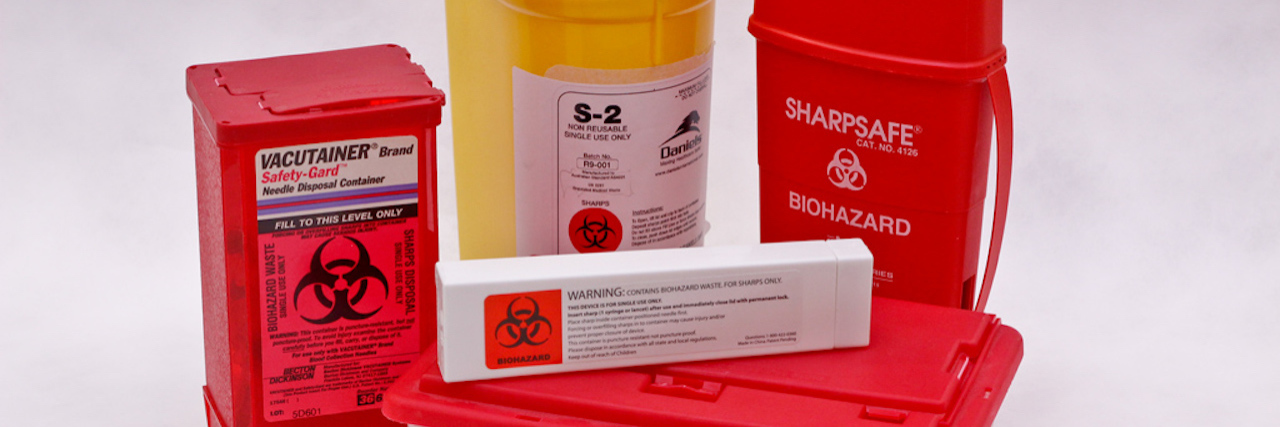Approximately 2.6 million tons. That is the amount of human regulated medical waste created by the United States every year. As a person with chronic illness, this becomes a much more personal figure. Syringes, sterile dressings, gloves, masks, bandaids, alcohol swabs, packaging, cotton balls, tubing and a plethora of other things that are discarded in order to maintain our health. These things that we use in order to take care of our bodies can take a toll upon the health of the environment. For everyone who goes in to see a doctor, additional things such as dressing gowns, paper coverings, vaccines, tongue depressors and test bottles/tubes are all routine in the regular ups and downs of people’s health journeys. Yet again, as spoonies, going to more frequent medical appointments are also contributing factors to the bigger impact on the environment. Yet for all of us with chronic illnesses, these impacts are not made by choice, but rather are done due to the necessity of keeping individuals with chronic illnesses from getting sicker, and for maintaining some quality of life.
Having sterile conditions is vital in cutting down secondary infections and potential risks such as sepsis. For some of us, this involves making sure that the conditions surrounding open wounds or ports are taken care of, wiped down and do not come into contact with any foreign materials. For others, it is making sure that when we do an injection or clean up a paper cut, the wound and area are clean from debris and do not introduce any bacteria into the system. These packagings, these wrappers, are the barrier between us and a potential secondary infection. However, this is not always an easy line to walk across – how can a spoonie maintain the optimum conditions for their care while lowering the environmental costs?
There is no clear answer. Yet one of the most important things a spoonie can do when taking care of their medical waste is to understand what the laws of your area are, and sort your waste accordingly. For example, the plastic and the paper wrappers for needles are things that can be recycled. If disinfecting for injections and other areas, it is possible to buy bottles of the alcohol used instead of the single use wipes. Returning unused and expired medication, as well as empty pill bottles to the pharmacy, is important in order to protect the waterways. While movies try to make a strong statement by flushing pills down the toilet, please do not do so! Additionally, please get a sharps container for syringes, needles and other sharp and pointy medical waste – this will keep everyone safe, and the container is clearly marked in order to allow for better sorting later on.
What is most important to remember is that there is no need to feel guilty about this. Modern medicine has evolved to the point where yes, there is a large need for maintaining a sterile environment. There is no greater gift than having stable health, and what this article is trying to say is be aware, care, but do not feel bad. As such, it is important to be aware of what your country is doing about medical waste disposal. For the risk of improper disposal of waste can create not only a larger impact upon the environment, but may even create a greater health risk for the surrounding communities due to contamination. If you read something that causes you concern, write and tell someone about it – and keep each other (and the world) healthy.

